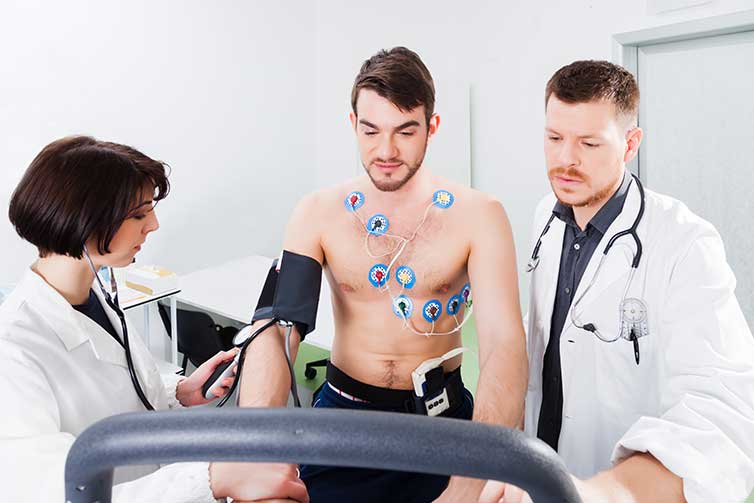Request a callback
Contact us
Get Direction
Zehra Manzil, G-3, 91, Lady Jamshedji Rd, near Paradise cinema, Mahim West, Mumbai, Maharashtra 400016

What is Treadmill Test or TMT Test?
Treadmill Test (TMT Test) is a type of heart stress test where a pressure test is performed while the individual is running on a treadmill over the span of an ElectroCardiogram (ECG). The motivation behind a TMT test is significantly to analyze blood flow in the heart when the individual is resting and when under ideal actual pressing factor. Strange heart rhythms can be identified while practicing and in this manner analyze the presence or absence of coronary artery diseases.
The TMT test involves running on a treadmill while the electrical activity of the heart is being monitored. The speed and incline of the treadmill are extended all through the scope of the TMT test. The result shows how well the heart responds to the pressing factor of different levels of movement. The circulatory strain, heartbeat, and electrocardiogram (ECG) are noticed beforehand, during, and after the test.
When is a TMT Test/ Stress Test required?
A TMT Test or treadmill stress test is performed to recognize an innate heart issue like Coronary Artery Disease (CAD) where coronary conduits get stopped up, infected, or harmed. It is additionally used to decide the state of the heart after an individual went through angioplasty or coronary failure. Shallow breathing, dizziness, chest uneasiness, are a portion of the curbed conditions that can be distinguished through a TMT Test. A TMT Test or cardiac stress test can likewise be utilized to measure the adequacy of medicines on angina and ischemia. It likewise helps in knowing any strange heartbeat rate in view of effort brought about by work out.
How is a TMT test or Stress Test performed?
- A Stress Test requires the patient to run on a treadmill or pedal on a fixed bicycle.
- During the Stress Test, an expert will put anodes on the patient’s chest to screen the heart; these will be appended to an ECG machine which screens heart action. Pulse readings are recorded too.
- To begin with, the pulse and circulatory strain will be checked at rest.
- The test intensity will increase step by step and the patient will keep on exercising until they feel tired.
How to prepare for the Stress Test?
On the day of your stress test:
- For two hours preceding your test: Do not eat or drink.
- Take your standard medicines except if in any case advised otherwise by your doctor.
- Wear comfortable clothes and shoes that are suitable for exercising on a treadmill.


